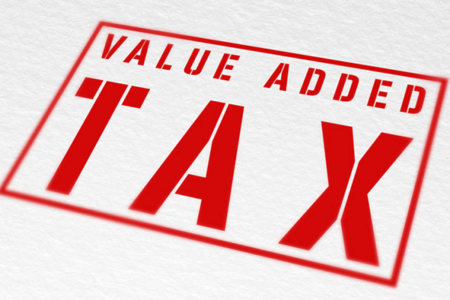The Value Added Tax (VAT) may be jacked up in an attempt by the Federal Government to harmonise Nigeria’s Value Added Tax (VAT) Act with the Economic Community of West African States (ECOWAS) directives. At the moment, Nigeria’s VAT rate is less than one per cent to its Gross Domestic Product (GDP).
The initiative to adjust the VAT came to the fore yesterday in Abuja at a three-day workshop on Nigeria’s VAT law organised by the ECOWAS Commission under the context of implementation of the Support Programme for Tax Transition in West Africa (PATF).
At the parley, the government said the country’s VAT performance was the lowest in the West African region, describing the development as worrisome.
PATF is geared towards improving the management of domestic taxation and ensuring better coordination in ECOWAS and West African Economic and Monetary Union (WAEMU) regions.
Director, Tax Policy, Federal Ministry of Finance, Budget and National Planning, Basheer Abdulkadir, said exemptions of VAT in Nigeria were not aligned with those of ECOWAS.
In the meantime, companies that were unable to file their Companies Income Tax returns for this year of assessment (YOA) that fell due on June 30, 2023 have been given up to August 31 to submit their returns to the Federal Inland Revenue Service (FIRS).
The FIRS, in a statement signed by Johannes Oluwatobi Wojuola, Special Assistant (Media and Communication) to the Executive Chairman, yesterday, stated that it had “received numerous calls from companies requesting for the extension of time to submit their Companies Income Tax (CIT) returns as they were unable to meet up with the deadline due on June 30, 2023”.
The FIRS noted that it agreed to extend the deadline for submission of CIT returns to companies “as a measure of goodwill and in line with relevant provisions of the Companies Income Tax Act. All companies whose CIT returns for 2023 year of assessment that fall due between June 30 and August 31, 2023 (both days inclusive) are given up to August 31 to submit the returns to the FIRS.”
On the VAT, Abdulkadir called for the exemption of few products, goods and services so that poor households could benefit from the policy,. He also called for the need to allow for tax input credit for intermediate and capital expenditure.
“Our VAT performance or rate is still one of the lowest. Nigeria has a VAT of less than one per cent to the GDP and this is worrisome. Also, we have the lowest VAT within the sub-region with an average of 16 per cent, while VAT rate in Nigeria is 7.5 per cent. So we need a lot of policy changes on tax administration as we also need to come up with strategies to address some of these issues.”
He said the exemptions of VAT in Nigeria are not aligned with those of the ECOWAS and we know that these exemptions are some of the issues that have to do with revenue mobilisation under the VAT.
Also speaking, Director of VAT, Federal Inland Revenue Service (FIRS), Lovette Onanuga, stated that VAT has the potential to raise a significant amount of revenue for the government.
Onanuga, while reiterating Nigeria’s commitment to ensuring the success of the PATF programme, described the workshop as timely.
“These three days’ workshop is very important. For example the study of the Harmonisation of Nigeria’s VAT Act with ECOWAS Directives will contribute to establishing coherence in the domestic systems of taxation and the realisation of the attainment of a common market and the Evaluation of VAT Performance will enable us to look more deeply into issues that will help improve VAT revenue collections”, she said.
ECOWAS Director of Customs Union and Taxation, Salifou Tiemtore, called on the government to put in place an appropriate institutional framework before the commencement of the implementation of the initiative.
Tiemtore, who was represented by Felix Kwakye, stressed the need for the evaluation of VAT performance, adding that the measure will outline issues that need to be addressed by the government of Nigeria to improve VAT revenue collections.
Oluwatobi Wojuola also assured companies that “the relevant Companies Income Tax returns will not attract late filing penalties or interests if payments were made on or before 31st August 2023.
He however warned that “where companies fail to file by the extended date, the penalty and interest for late payment will be computed from the original due date”.
According to Wojuola “the relevant CIT returns shall, therefore, not attract Late Filing Penalty or interest for late payment if submitted to the Service on or before 31st August 2023.
“Where relevant CIT returns are not filed by the extended date, penalty and interest for late payment shall be computed from the original due date and not the extended date.”
The Service added that the grace period extended to companies to file their CIT returns does not cover “returns for withholding tax, value added tax, personal income tax (PAYE), among others.
Wojuola appealed to companies “to take the opportunity afforded by this extension to submit their CIT returns within the specified time, pay the taxes due and avoid payment of penalty and interest”
Source: The Nation

